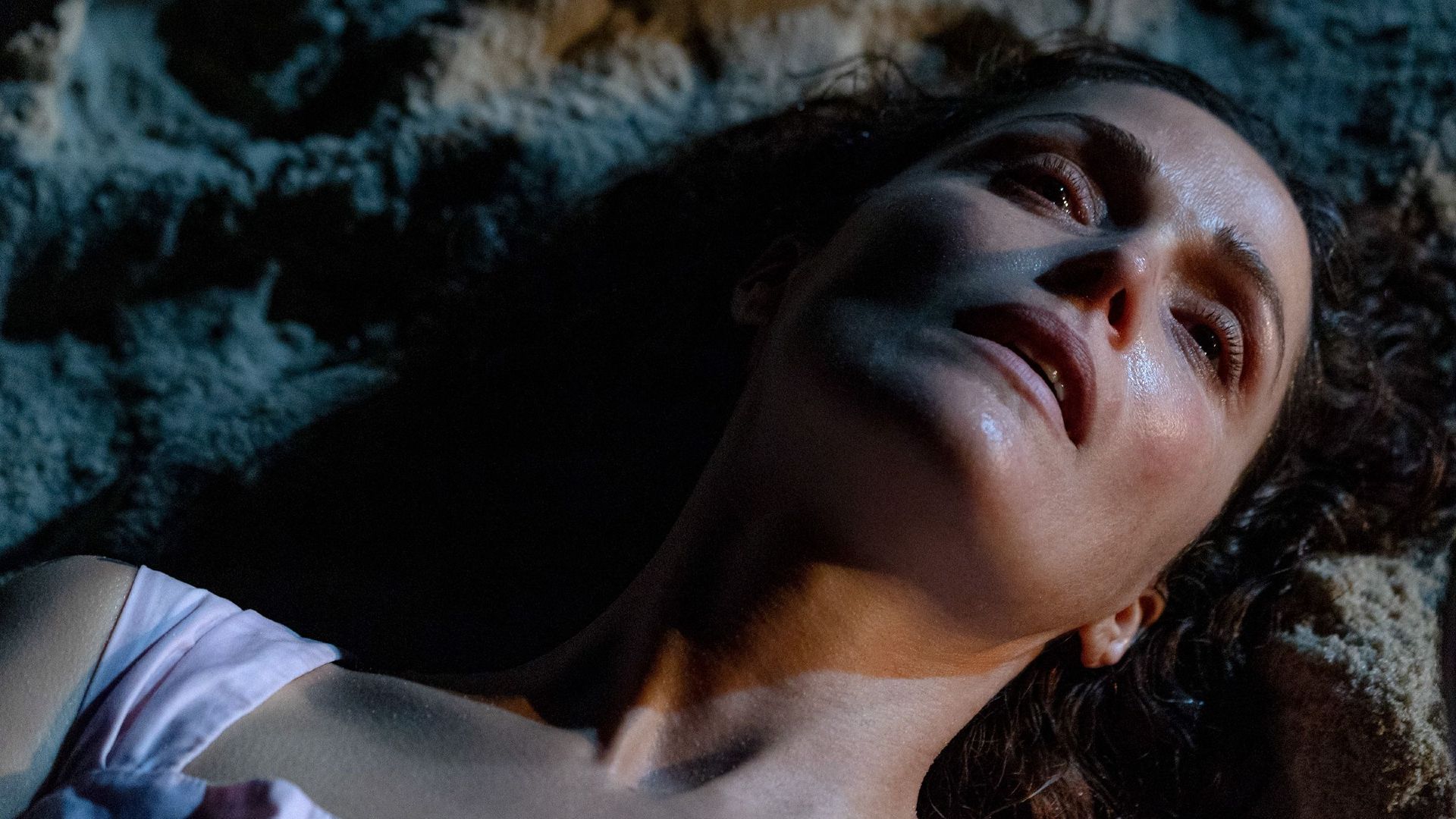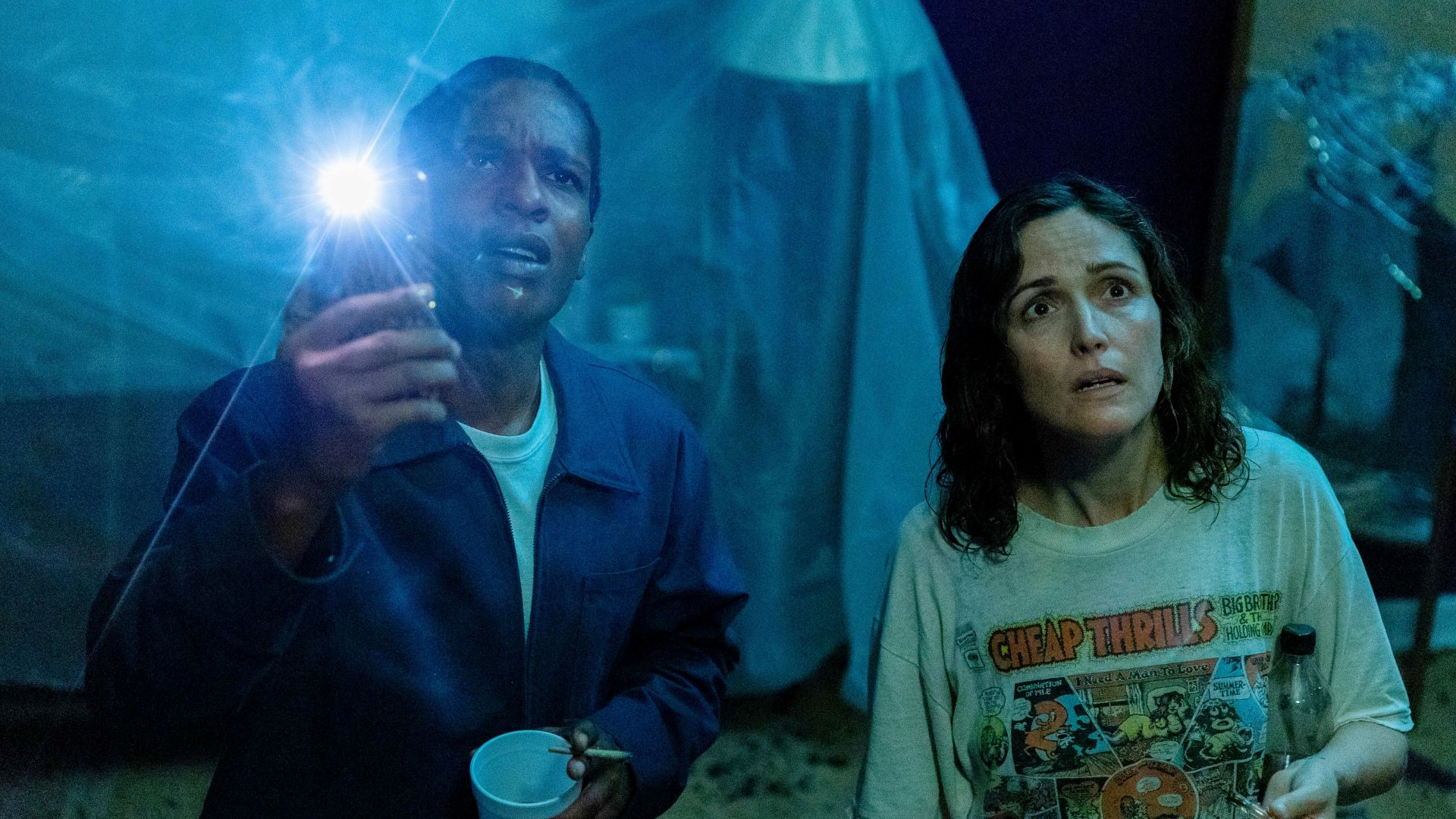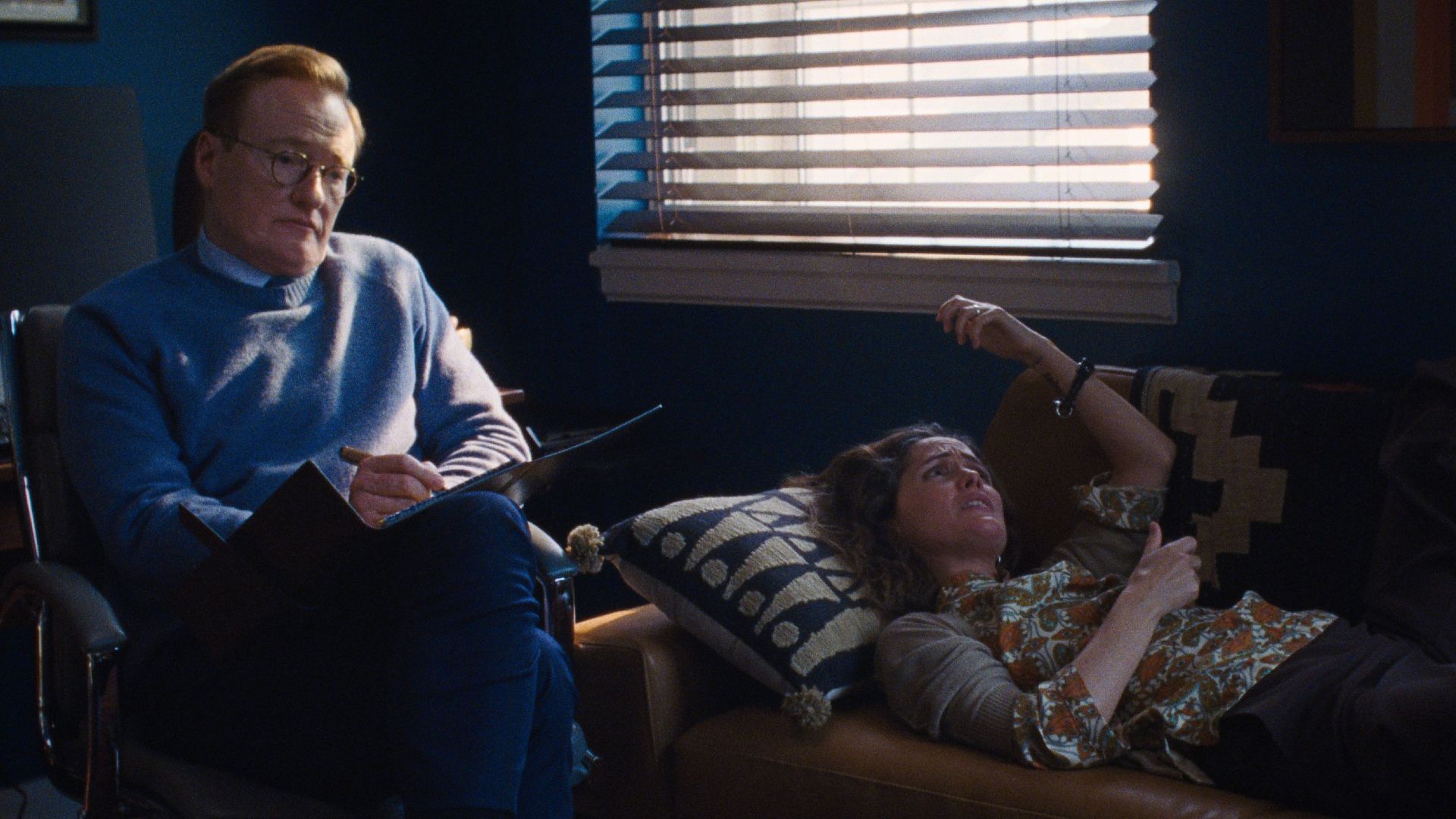
After a 17-year hiatus, writer-director Mary Bronstein returns with the compelling and darkly funny film, *If I Had Legs I’d Kick You*. The movie is powerfully made and feels like the arrival of a fresh, significant filmmaker. It might just be. Rose Byrne delivers an exceptional performance as a New York therapist struggling with a sick child, a distant husband, and challenging conflicts with a colleague she’s also in therapy with.
The story quickly establishes Linda’s hectic and financially strained life. Things come to a head when her apartment ceiling collapses, causing a flood, likely from a broken pipe. With her husband away on business, Linda and her young daughter, who requires nightly tube feeding, are forced to move to a cheap motel while repairs are made.
As a movie fan, I immediately connected with the main character, Linda. She’s *already* stretched so thin, barely holding it together, and then – boom – her ceiling collapses. It feels like the universe is just piling on, right? It’s that messed-up, darkly funny thing about life: when you’re convinced you can’t handle *one more thing*, that’s exactly when everything goes wrong. A flat tire, the power getting shut off… stuff that maybe could have been prevented if you weren’t already juggling a million other things.
From the beginning, the director makes a bold decision: we never see Linda’s daughter (played by Delaney Quinn) clearly. The camera only shows quick glimpses – a bit of hair, her arms and legs moving – but always avoids a full view of her face. This forces us to see things entirely from Linda’s point of view and understand her as an individual, not just as someone’s mother or wife.
It’s easy to criticize Linda for sneaking out of the motel each night after her daughter falls asleep. She craves a little peace and quiet, and finds it by listening to music while having a drink and smoking. Though she checks on her daughter with a baby monitor, she’s understandably quick to defend herself against accusations of being a bad mother. Linda faces constant judgment from everyone around her – her husband, her daughter’s doctor, even people like the motel clerk and a hospital parking attendant. She’s become so used to defending herself that she immediately sees even friendly gestures, like those from a kind neighbor (played by A$AP Rocky), as threats.

A24
The story frequently explores how our individual experiences shape the way we see the world. This idea comes up in therapy sessions with Linda, and her therapist—played surprisingly well by Conan O’Brien in a rare acting role. Their relationship is complicated by Linda’s unreturned feelings, and her difficulty accepting helpful advice. Interestingly, Linda displays similar patterns with her own patients—a struggle to acknowledge reason when overwhelmed by deep emotional pain. It’s hard to think clearly when you’re feeling lost and empty inside.
Holes, both physical—like those in the ceiling—and metaphorical—like the one in her daughter’s health—appear repeatedly and gain a deeper, almost philosophical meaning in the film’s dreamlike scenes. Linda is overwhelmed by constant demands and responsibilities, to the point where her breakdown feels like a strange, desperate attempt to break free from everything.
The fact that Bronstein’s film feels groundbreaking in 2025 is both comforting and unsettling. It’s been 14 years since Lynne Ramsay’s *We Need To Talk About Kevin* explored similar, difficult territory surrounding motherhood, though with a different focus. Ramsay’s film boldly questioned the nature versus nurture debate, showing a mother struggling with resentment as her son develops into a troubled teenager and ultimately commits a violent act. The film, and the Lionel Shriver novel it’s based on, felt controversial at the time, but the expectation that mothers should always love and instinctively understand their children can actually prevent women from openly discussing their own mental health struggles.

A24
Even after 14 years, the film *If I Had Legs I’d Kick You* remains powerfully unsettling because the issues it raises haven’t really improved. The film directly references the tragic case of Andrea Yates, who drowned her five children after her husband dismissed her postpartum depression and psychosis – a case from 24 years ago. This connection appears as Linda, a therapist, treats Caroline, a young mother struggling with intense anxiety about her baby. Caroline is gripped by the fear that something terrible will happen to her son, but she finds it impossible to express what that fear *is*, finding the thought too horrifying and taboo to even share with her doctor.
Caroline struggles to understand her anxiety, much like Linda finds it hard to ask for help or even figure out what she needs. Society expects women to be strong and self-reliant, yet often ignores their struggles and feelings. Because of this, asking for support doesn’t often feel possible. Women are criticized whether they try to handle things on their own, ask for help, or simply have needs at all.
Mary Bronstein’s film, *If I Had Legs I’d Kick You*, is likely to be compared to *Uncut Gems*, a movie co-written by her husband and frequent Safdie brothers partner, Ronald Bronstein. Simply put, it’s like *Uncut Gems* but focuses on the struggles of millennial women. Actress Byrne gives a performance as strong as those by the legendary Gena Rowlands, and the film itself is a modern addition to the same style of intense, character-driven stories. Filmed with a raw, close-up aesthetic, it’s a uniquely gripping and ultimately satisfying watch, offering a powerful look at anxiety.
Read More
- All Golden Ball Locations in Yakuza Kiwami 3 & Dark Ties
- Gold Rate Forecast
- A Knight Of The Seven Kingdoms Season 1 Finale Song: ‘Sixteen Tons’ Explained
- Hollywood is using “bounty hunters” to track AI companies misusing IP
- Mario Tennis Fever Review: Game, Set, Match
- What time is the Single’s Inferno Season 5 reunion on Netflix?
- This free dating sim lets you romance your cleaning products
- 4. The Gamer’s Guide to AI Summarizer Tools
- Every Death In The Night Agent Season 3 Explained
- Beyond Linear Predictions: A New Simulator for Dynamic Networks
2025-10-10 20:13